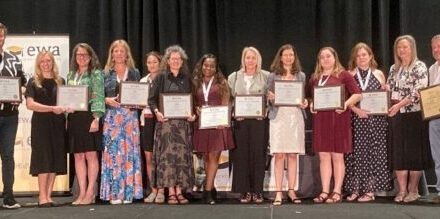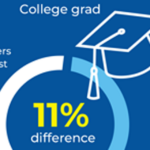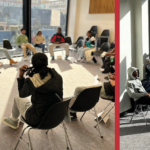In a Monday article at Vox, Matt Yglesias makes the case that politicians and the media have gotten the narrative largely wrong on several counts and as a result diminished attention and focus on issues that need attention.
The obsessions he focuses on in particular are robots displacing human workers, and also income inequality. According to Yglesias, robots have yet to be as much of a threat as has been anticipated, and inequality is a serious problem but productivity is an even greater one.
Not everyone thinks Yglesias knows what he’s talking about, and some disagree directly with the Yglesias argument. Perhaps he’s just trying to get attention by contradicting conventional wisdom.
But still, the article got me thinking about education journalism’s current obsessions — technology, charter schools, teacher effectiveness, accountability among them — and whether some or all of these issues may not be as important or transformative as we may believe them to be. It’s possible, and it would be such a shame if it were true.
I won’t try and mount a Yglesias-sized argument here, but there’s at least some evidence that we may be on the wrong track in terms of where we’re focusing our attention: Charter schools remain a small part of the education landscape in most parts of the country — and the public still doesn’t really know (or care?) what they are. Millions of Americans and tens of thousands of schools don’t have 21st Century broadband internet access, hardware, and/or wireless that would allow them to make full use of all the apps and games that are being developed and promoted. Measuring teacher effectiveness is a fledgling science and doesn’t necessarily lead itself to solutions given the massive size of the teaching workforce and the relatively low wages with which they’re paid.
What might be some of the “sleeper” issues that turn out to be more important in the long run than the ones we’re all writing about now? I don’t really know. Some possibilities that are currently out of favor but might play such a role include state funding/equitability lawsuits, low-tech interventions (text messaging, say, or universal enrollment systems) that seem to have strong potential, or non-education efforts to reduce residential segregation or improve children’s health. The 2014 Murnane and Duncan book has some ideas that are quiet but seemingly powerful.
My point isn’t to make a conclusive argument that we’re all on the wrong track, or to claim to know exactly what focus we should have, but rather to make the observation that education coverage and the political debate have gotten pretty narrow and awfully predictable and that some of these things — like Yglesias’ robots — might not be the next big thing that we think them to be.
Professional journalism is shrinking, which makes covering anything but the latest squabble or board meeting hard to pull off, but nonprofit journalism seems to be doing quite well. Wouldn’t it be great to find some other, new veins of coverage to write about? What would they be?
ABOUT THE AUTHOR

Alexander Russo
Alexander Russo is founder and editor of The Grade, an award-winning effort to help improve media coverage of education issues. He’s also a Spencer Education Journalism Fellowship winner and a book author. You can reach him at @alexanderrusso.
Visit their website at: https://the-grade.org/












